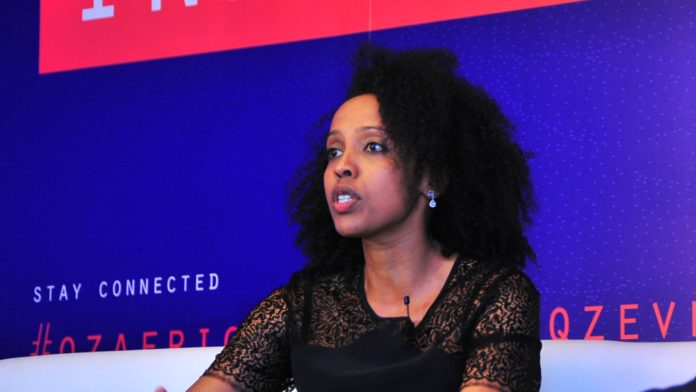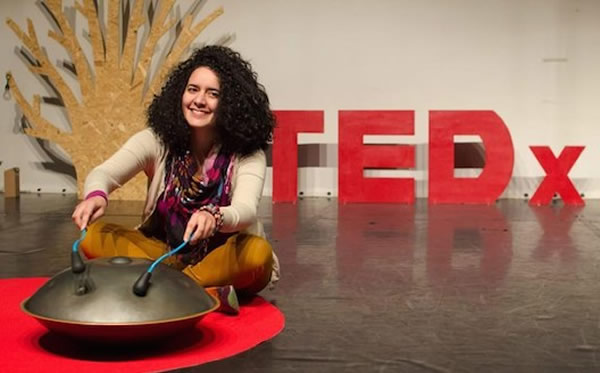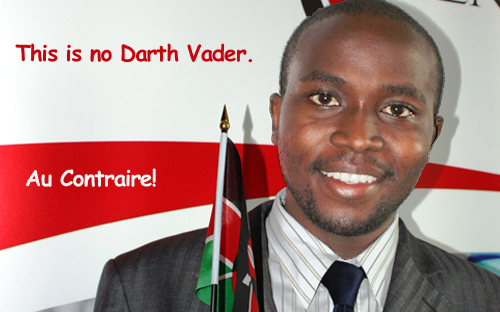While the public conversation around innovation is often limited to developments within science and technology, in practice, its manifestation is limitless. This year’s list includes leaders within agriculture, the arts, hospitality, healthcare and beyond, because experimenting within any discipline leads to innovations that have the capacity to alter and inform how we live.
1. Prof. Lesley Erica Scott
Being a professor of Applied Sciences, Prof. Lesley Erica Scott is using her knowledge to transform medical diagnoses in Africa with Smartspot TBcheck technology. The technology checks the accuracy of the results from popular rapid Tuberculosis tests, of which incorrect diagnosis of the deadly disease can put individuals at a risk of going through unnecessary treatment. Smartspot is the first technology of its kind developed by Africans, for Africans, to be endorsed by the World Health Organisation (WHO).
With Smartspot, Tuberculosis diagnosis and treatment which has saved over 37 million lives between 2000 and 2013 will significantly improve, allowing laboratories to safely and economically diagnose the disease which is the third leading cause of death in Africa. Smartspot was awarded the Special Prize for Social Impact ($25,000) at the 2015 Innovation Prize for Africa awards which held in Morocco.
2. Afua Osei
As one of the founders of She Leads Africa (SLA), Afua Osei is driven by a goal to create the ‘go-to’ community for smart and ambitious young African women. SLA offers young African women coaching, online guides, classes, and on-the-road tours and programmes, where each offering is strengthened by building direct engagement between women in SLA’s various communities.
For Afua, along with her partner Yasmin Belo-Osagie, SLA is a space that is for African women, by African women and about African women. According to her, SLA expands through customer engagement, and understanding what young African women need to help them achieve within their careers as they develop.
Asma Mansour’s journey as a social entrepreneur started because of her experience working with NGOs, which in her opinion, lacked adequate sustainability impact assessment on the people that these organisations were trying to help.
In 2011, Asma founded the Tunisian Centre for Social Entrepreneurship in Tunisia after a discovery that gave her an entirely new perspective. While attending a conference in Japan, she came across a company that was solely focused on tackling social problems and happened to meet like-minded individuals who would eventually become her co-founders.
The Tunisian Center for Social Entrepreneurship is the first of its kind in Tunisia. The innovative board co-creates local ecosystems in Tunisia, and the centre comes up with new ideas to tackle social problems, while working with unemployed people in both rural and urban areas.
Asma was an Ashoka Fellow in Tunisia in 2014. Her latest project is expanding “Lingare”, the centre’s latest product from its current location in Mahdia to other regions such as Sidi Bouzid, Kasserine and Jandouba.
Growing up without electricity turned out to be one of the best things to happen to young Evans Wadongo. After graduating with honors from the Jomo Kenyatta University of Agriculture and Technology in 2009, Evans combined his passion for clean energy solutions to what he learned from his degree in Electronics and Computer Engineering to make the LED lamps he became famous for, at the impressive age of 19.
He is currently the Co-Founder of GreenWize Energy Limited and the Executive Director and Founder of Sustainable Development for Africa (SDFA) in Kenya. Since its formation in 2014, Greenwize’s revenue has increased by 100 percent each year and the employee count has tripled. By 2019, the energy company is set to serve 300,000 clients with renewable energy solutions through a “pay as you go” model.
By 2019, the company hopes to develop ‘EnergieRapide’ an all-in-one solar and wind energy hub. Evans finds being an innovator both ‘tiring and fulfilling’ but for him, it’s all about hard work.












